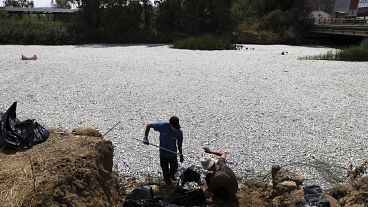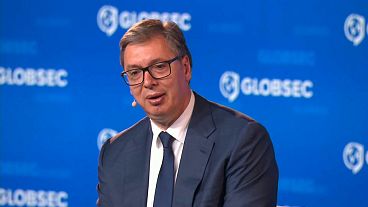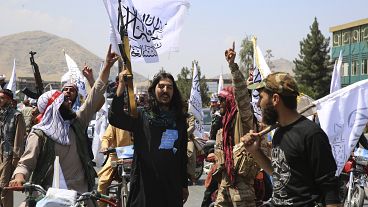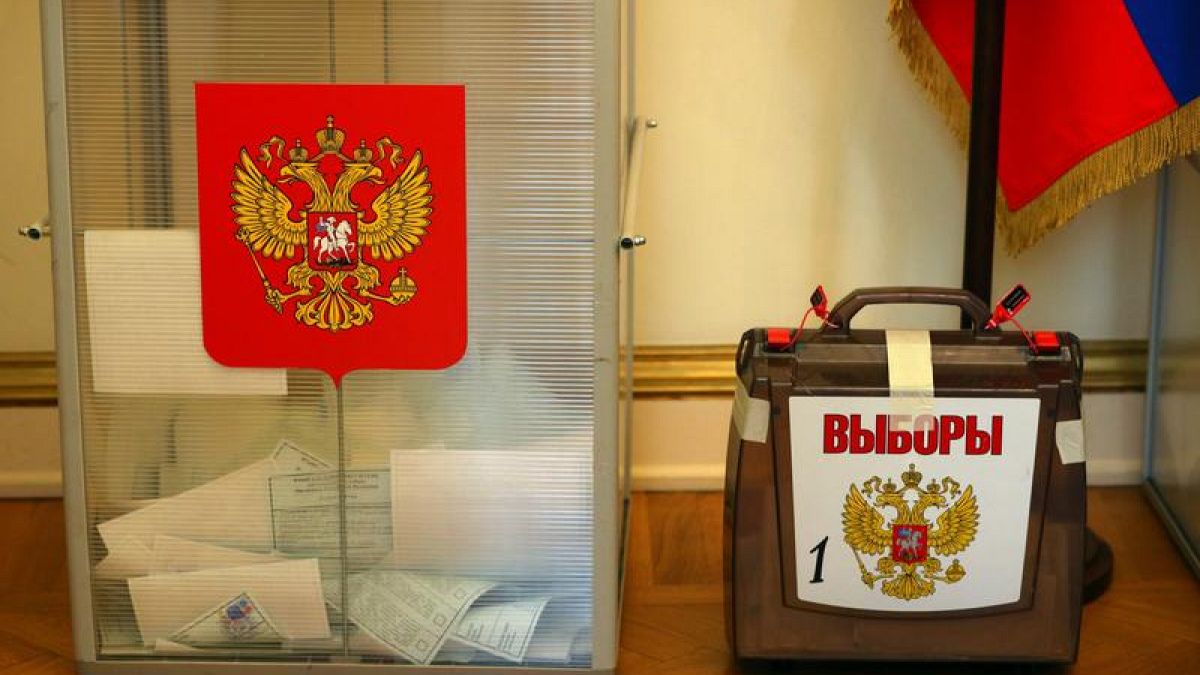As Russia votes in this year's parliamentary and regional elections on September 9, the imminent victory of Vladimir Putin's ruling United Russia party might be tarnished by nation's outrage over highly unpopular pension reform.
As Russia votes in this year's parliamentary and regional elections on September 9, the assumed victory of Vladimir Putin's ruling United Russia party may be tarnished by the nation's outrage over a highly unpopular pension reform.
Here's what you need to know about the country's legislative elections.
How are this year's elections different?
This year's elections are marked by an unprecedented outcry for modern Russia against the pension reform introduced by the government in mid-June. Together with the deepening economic crisis following Western sanctions over the annexation of Crimea and the Skripals poisoning, the ruling party and even president Vladimir Putin, experienced a dip in the polls.
In August, the United Russia's approval rating dropped to its decade's lowest. According to state pollster Public Opinion Foundation, only 33% of Russians were ready to vote for the party. Another poll showed that 66% disapprove of the current government, that is dominated by the United Russia party.
"People hold the United Russia accountable for this reform," independent political analyst Maria Lipman says. "The party's ratings dropped and now the deputies who recently voted for this law have to face the vote."
This may bring "unexpected but not necessarily positive results [for the authorities], " political expert Dmitry Oreshkin told Euronews.
"For the past two or three years we see that the economy is stagnating, the prices are growing and incomes are dropping. Nevertheless, Russians think that Putin's policy is good even though their living conditions are worsening. According to them, it's the government, the regional authorities and the oligarchs who are to blame."
Despite continuing nationwide support, Putin has lost some points in opinion polls. In June, his approval rating fell to 54% which made it the lowest number since 2013. Even though his popularity doesn't affect the parliamentary vote directly, political experts think it is still a key factor.
"The Russian regime relies on Putin's personality as most Russians think there's no alternative to him," says Lipman. "If his ratings continue to drop, it can change the dynamic between different power-wielding groups in Russia."
How will voter boycotts affect the elections?
Opinion pollsters predict low turnout due to voter apathy and the feeling that their votes don't matter — this is not a new phenomenon in Russia. However this time, experts say, by not voting, voters are also signaling that they're against the government's pension reform policy.
According to Oreshkin, the election outcome won't change because the authorities have been using the low turnout strategy to their benefit for years. Today, when facing rising resentment, voters lose faith in the system and this results in lower turnout at the polls which ensures an easy win for the authorities: "People get fed up and vote for the opposition", he explains.
"The authorities are better off when people with such sentiments don't show up at the polling stations. Instead, pensioners and employees of state-owned companies do — they're easier to control."
"Low turnout and low interest for the elections is the price that the country's authorities are willing to pay," confirms Lipman. "Even since 2014 and especially now, the elections are designed in such a way that no surprise is possible anyway. The unwanted candidates have already been cut off during the early stages of the election campaign".
Will there be mass protests on election day?
The supporters of Putin's main political foe Alexei Navalny are calling for unauthorized protests against the pension reform on election day on September 9. Navalny was detained in front of his house in August and is being held by police for a month.
Even though the polls show that the majority of Russians are ready to take it to the streets, the experts think that only a very insignificant number of people will really show up.
"It's a paradox", says Oreshkin. "Nobody's happy but there is no person to unite different groups and embody the struggle against the new law. If the rally is organised by the Communists, the anti-Communists won't participate in it. And the patriots won't come to Navalny's protests."
"People participate in unauthorized rallies unwillingly because they don't want troubles with the police", adds Lipman. "Moreover, Navalny's supporters are mostly very young and they don't think about their pensions yet."
According to Russian police, about 7,000 people took part in the anti-reform demonstration organised by the Communists earlier this month.












